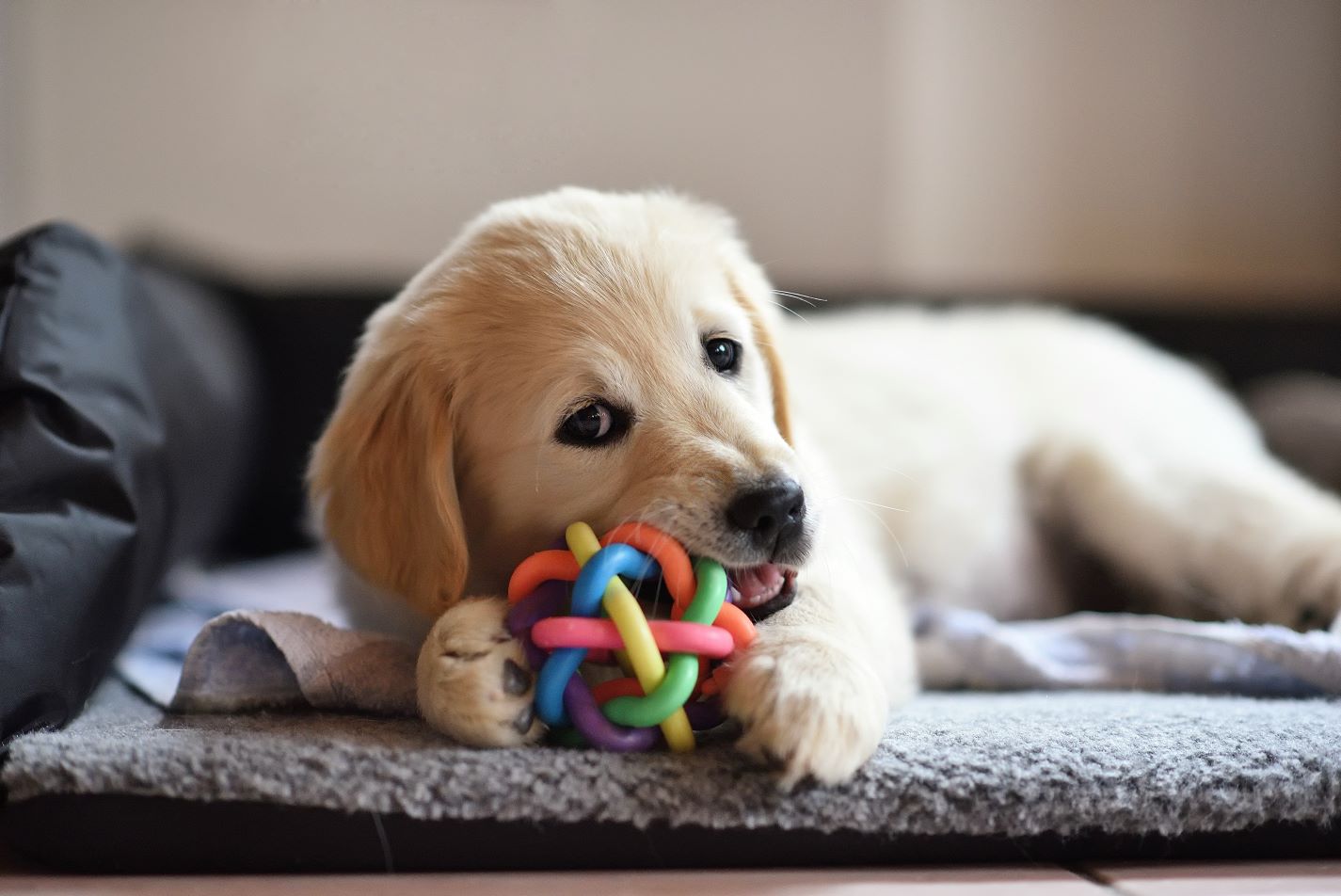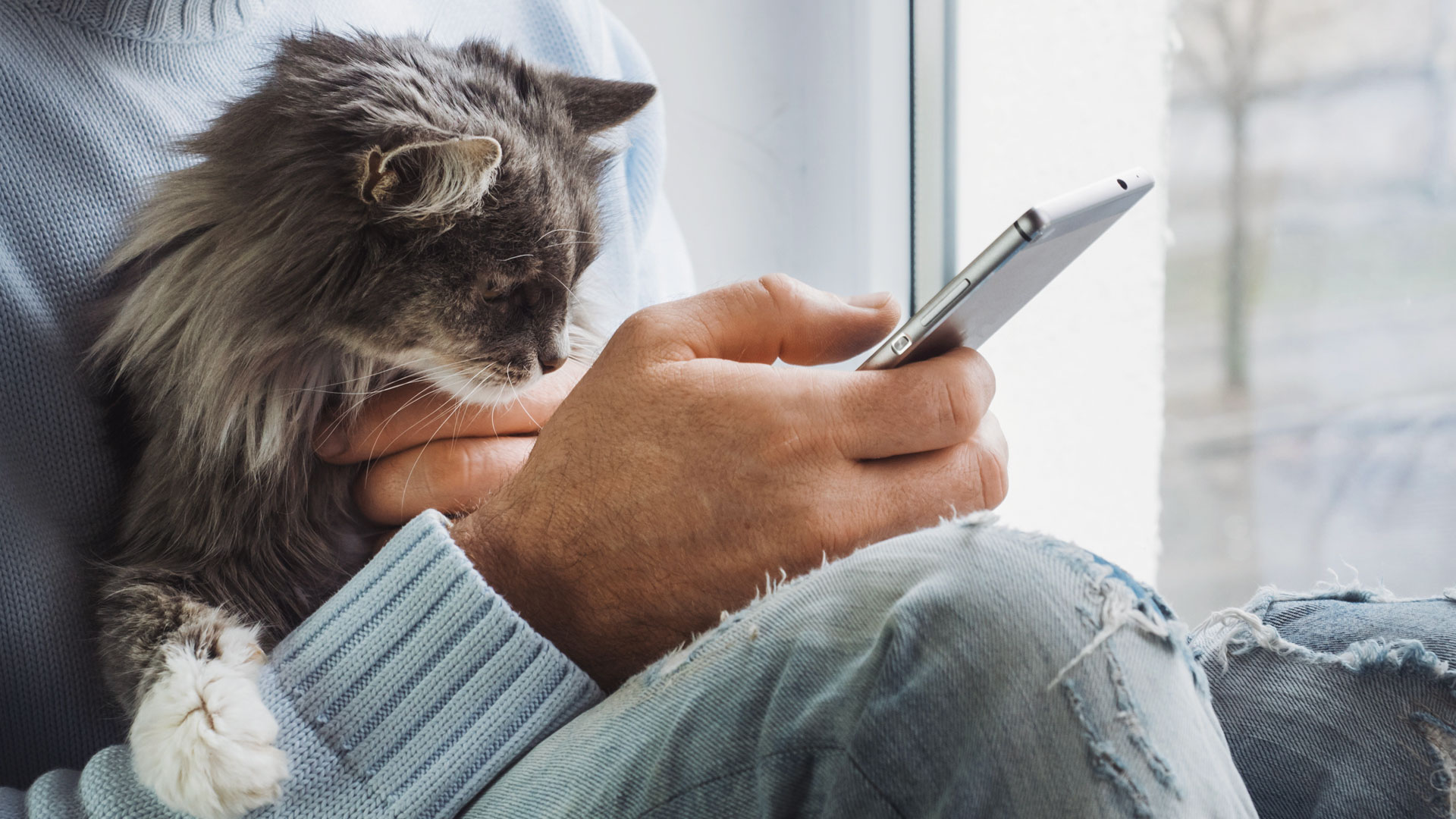Preparing for Your New Puppy
There is an undeniable magic that fills the air when a new puppy enters your life. As you bring your new puppy home, you can’t help but feel a rush of excitement and anticipation. Their innocent eyes gaze up at you, filled with trust and a yearning for companionship. By preparing for your new puppy, you’ll be ready to welcome them to their new home.
A puppy showers you with unwavering loyalty and offers a constant reminder of the simple joys in life. They remind you to find happiness in the smallest of things, to savor every moment, and to enjoy the moments that make life truly meaningful.
Bringing home a new puppy is not just about welcoming a furry friend into your life—it is an extraordinary journey of love, companionship, and personal growth. It is a journey that will fill your days with laughter, your heart with warmth, and your home with an abundance of happiness. So, embrace this magical adventure with open arms, for the love and joy that a new puppy brings are truly unmatched.
To ensure a smooth transition and provide the best care for your furry friend, proper preparation is key. In this article, we will guide you through the essential steps to take when preparing for your new puppy, covering important topics such as the initial vet visit, training, toys, allergies, puppy care, puppy food, grooming, socialization, and crate training.
The Initial Vet Visit: The Foundation for Good Health
Your new puppy’s first visit to the veterinarian is crucial for establishing a baseline of health and addressing any immediate concerns. At Faithful Friends, we have a whole package designed for new puppies to cover all the early check-ups and get you started on the right path.
During this visit, one of our vets will perform a thorough physical examination, administer necessary vaccinations, and discuss parasite prevention strategies. Take this opportunity to ask any questions you may have about your puppy’s well-being, nutrition, and future healthcare needs. We want your puppy to thrive in his or her new home, and we want you to enjoy these early days with your new friend!
Puppy Care: Meeting Basic Needs
Welcoming a new puppy into your home comes with the responsibility of meeting their basic needs, ensuring their health and well-being. By establishing a routine that encompasses regular feeding, fresh water availability, daily exercise, and proper hygiene, you can create a nurturing environment where your puppy can thrive.
Regular Feeding
Provide your puppy with a balanced and age-appropriate diet to support their growth and development. Consult with your veterinarian to determine the best feeding schedule and portion sizes for your puppy’s breed and size. Make mealtimes a consistent and peaceful experience by designating a specific area for feeding and avoiding distractions.
Fresh Water Availability
Keep a bowl of fresh water accessible to your puppy at all times. Ensure the water is clean and refreshed regularly. Monitoring their water intake is essential, especially during hot weather or after physical activity, as puppies can easily become dehydrated.
Daily Exercise
Puppies have boundless energy that needs to be channeled through daily exercise. Take your puppy for walks, engage in interactive play sessions, and provide opportunities for mental stimulation. However, keep in mind that puppies have growing bodies, so avoid excessive high-impact activities that could strain their developing joints.
Proper Hygiene
Maintaining good hygiene is vital for your puppy’s health. Establish a grooming routine that includes regular brushing to keep their coat clean and free from mats. Introduce them to toothbrushing early on to promote good dental hygiene. Additionally, keep their ears clean, trim their nails regularly, and maintain a clean living environment to prevent the spread of bacteria and parasites.
Structured Routine
Puppies thrive in an environment with structure and routine. Establish a consistent schedule for feeding, walking, playtime, and rest. This helps them feel secure and provides them with a sense of predictability. A structured routine also aids in housebreaking and helps your puppy understand expectations.
Quality Time and Social Interaction
Puppies crave attention and social interaction. Spend quality time with your furry friend through play sessions, gentle petting, and cuddling. Engage in positive reinforcement training, reinforcing desired behaviors with praise and treats. This not only strengthens your bond but also helps your puppy learn and grow.
Mental Stimulation
In addition to physical exercise, puppies need mental stimulation to keep their minds sharp and prevent boredom. Provide them with interactive toys, puzzle games, and treat-dispensing toys to engage their curiosity and problem-solving skills. Rotate toys regularly to keep them engaged and prevent monotony.
Remember, each puppy is unique, and their needs may vary. Observe your puppy closely, paying attention to their behavior and cues, to understand their individual requirements. Regular check-ups with a veterinarian are essential to monitor your puppy’s health and address any concerns that may arise.
Providing Balanced Nutrition
Choosing the right puppy food is vital for your pet’s growth and development. Opt for high-quality, commercially prepared puppy food that meets the nutritional requirements for their specific breed and age. Consult one of our trained veterinarians for guidance on feeding schedules, portion sizes, and transitioning to adult food as your puppy grows.
Here are a few additional tips to ensure you provide balanced nutrition for your new puppy:
- Choose High-Quality Puppy Food: Opt for commercially prepared puppy food that is specifically formulated to meet the nutritional needs of growing dogs. Look for trusted brands that use high-quality ingredients and follow industry standards for pet nutrition.
- Consider Breed and Size Requirements: Different breeds and sizes of puppies have varying nutritional requirements. Larger breeds, for example, may benefit from specially formulated large breed puppy food that supports their bone and joint health. Consult with your veterinarian to determine the most suitable food for your puppy’s specific needs.
- Follow Feeding Guidelines: Pay attention to the recommended feeding guidelines provided by the food manufacturer. These guidelines are typically based on your puppy’s age, weight, and breed. Avoid overfeeding, as it can lead to weight gain and other health issues. If you have concerns about your puppy’s weight or feeding amounts, consult your veterinarian for guidance.
- Establish a Consistent Feeding Schedule: Puppies thrive on routine, so establish a consistent feeding schedule. Divide their daily food portion into multiple meals throughout the day, based on their age and size. Young puppies may require three to four small meals, gradually transitioning to two meals as they grow.
- Monitor Growth and Adjust as Needed: Keep an eye on your puppy’s growth and overall body condition. If they are gaining weight too rapidly or appearing overweight, consult your veterinarian to adjust their feeding amounts accordingly. Regular growth monitoring ensures that your puppy is growing at a healthy rate.
- Avoid Table Scraps and Harmful Foods: While it may be tempting to share your meals with your puppy, it’s important to avoid feeding them table scraps. Many human foods can be harmful to dogs, such as chocolate, onions, grapes, and certain spices. Stick to their appropriate puppy food to ensure they receive the necessary nutrients without any risks.
- Gradual Food Transitions: When transitioning your puppy from one brand or type of food to another, do it gradually. Mix small amounts of the new food with their current food over a period of several days to allow their digestive system to adjust. Sudden dietary changes can cause gastrointestinal upset.
Remember, the nutritional needs of your puppy may change as they grow older. Preparing for your new puppy means having their nutritional needs met. Regularly consult with your veterinarian to assess their nutritional requirements and make any necessary adjustments to their diet. By providing balanced nutrition, you are setting the stage for a healthy and thriving life for your beloved puppy.
Good Grooming Habits Maintain a Healthy Coat and Skin
Regular grooming sessions are essential for your puppy’s overall hygiene and well-being. Brush your puppy’s coat regularly to remove tangles and prevent matting. Introduce toothbrushing early to maintain good dental health. Additionally, schedule professional grooming appointments as needed, especially for breeds with specific grooming requirements.
Puppy Training: Building a Strong Bond and Establishing Boundaries
Training is essential for your puppy’s development and well-being. Familiarizing yourself with dog training is important for preparing for your new puppy. Start with basic obedience commands such as sit, stay, and come. Positive reinforcement techniques, such as treats and praise, work wonders in encouraging good behavior. Consider enrolling in puppy training classes to provide structured learning and socialization opportunities.
Engage in Stimulating Playtime
Toys are not only a source of entertainment for your new puppy but also vital for mental stimulation and preventing destructive behavior. Invest in a variety of safe and age-appropriate toys, including chew toys, interactive puzzle toys, and soft plush toys. Rotate the toys regularly to keep your puppy engaged and curious.
Proper socialization during the early stages of your puppy’s life is crucial for their development into a well-adjusted adult dog. Introduce your puppy to a variety of people, animals, and environments to build confidence and positive associations. Puppy playdates, supervised interactions with other dogs, and controlled exposure to new experiences can help foster a friendly and sociable personality.
Crate Training: Creating a Safe and Comfortable Space
Crate training provides a safe and secure den-like space for your puppy. Introduce the crate gradually, making it a positive and comfortable environment by placing soft bedding, toys, and treats inside. Use the crate for short periods initially and gradually increase the duration. Crate training aids in housebreaking, prevents destructive behavior when unsupervised, and offers a place of comfort for your puppy when they need some alone time or during travel.
Remember, crate training should always be done in a positive and gentle manner. Never use the crate as a form of punishment, as it should be a positive association for your puppy.
Identifying Allergies and Managing Potential Triggers
Some puppies may develop allergies to certain foods, environmental factors, or substances. If you notice any signs of allergies, such as itching, excessive scratching, or gastrointestinal upset, consult your veterinarian promptly. They can help identify the triggers and guide you in managing your puppy’s allergies through dietary adjustments or medication if necessary.
Patience, Love, and Consistency
Finally, the most important aspect of preparing for your new puppy is to shower them with patience, love, and consistency. Puppies require time, attention, and guidance to become well-behaved and happy companions. Be patient with them as they learn, provide them with plenty of affection and positive reinforcement, and establish consistent routines to help them feel secure and confident in their new home.
Preparing for your new puppy involves several important steps to ensure their well-being and happiness. From the initial vet visit to training, toys, allergies, puppy care, food, grooming, socialization, and crate training, each aspect plays a crucial role in their development. By following this comprehensive guide and seeking guidance from your veterinarian, you can set your new puppy up for a lifetime of love, health, and companionship. Enjoy the journey of welcoming your new furry family member into your home!




